|
A state level seminar on “New Challenges in Cashew Production under current Trends of Climate Change” was organized at ICAR Research Complex for Goa, Ela Old Goa in collaboration with Directorate of Casheewnut and Cocoa Development (DCCD), Cochin and Zuari Industries limited, Goa on 21st August 2010. The seminar was inaugurated by Shri V K Jha, Secretary (Agriculture), Government of Goa. At the outset, Dr N P Singh, Director, ICAR Research Complex for Goa welcomed the dignitaries, delegates and farmers and gave an account of cashew production in Goa. Shri V K Jha, Secretary, Department of Agriculture, Government of Goa, in his inaugural address urged the farmers to make use of government schemes and benefit from research to increase production and productivity of cashew in Goa. He stressed that cashew is an international commodity and called for all out efforts to boost its yield in the state for exploring the export potential of both Goan cashews and Cashew Feni. Shri S S P Tendulkar, Director, Directorate of Agriculture, Government of Goa gave introductory remarks and narrated about schemes of Government of Goa to promote cashew production. He urged farmers to use modern cultivation practices for cashew production. Shri Madhav Sahakari, Chairman, Cashew manufacturers’ Association of Goa, narrated his experiences as cashew farmer and processor. He pointed out the advantage of highest price for raw nuts available for cashew growers in Goa as compared to other cashew growing states in the country. Shri B K Kinekar, General Manager (Sales), Zuari Industries, Goa briefed about various activities being organized by The Zuari Industries Limited for the benefit of farming community. He also stressed on benefits of micronutrients and specialty fertilizers in cashew production. Shri V N Hubballi, Director, DCCD, Cochin in his presidential address gave overall scenario of cashew cultivation in India and highlighted the scope and need for enhancing cashew productionin the state of Goa. Dr. A R Desai, Senior Scientist (Horticulture) proposed vote of thanks. Later in technical sessions, talks on cashew scenario in India and Goa, prospects and constraints of Feni Industry in Goa, advances in cashew production technologies, approaches on canopy management and rejuvenation in cashew, impact of weather changes on incidence of pests and diseases, climate variability and cashew production were delivered by experts from the respective fields. Progressive farmers also spoke about their experiences, constraints and needs for future of cashew farming in Goa. The seminar concluded with the following recommendations. Recommendations 1. In order to cushion the unpredictable impact of climate changes on cashew crop, multilocational trials of improved varieties need to be initiated and location specific multiple varieties be identified for recommendation. 2. Cashew stem and root borer and Tea moquito bug are the major bottlenecks. ICAR with Directorate of Agriculture and DCR, Puttur may initiate pest surveillance programmes to develop effective management strategies, including such techniques like fogging, on priority. 3. Micronutrients are known for their special protective and qualitative functions besides their impact on yield performance. Therefore, emphasis needs to be laid on the development and recommendation of the micronutrient management strategies that may immunise the cashew trees against biotic and abiotic stress including climate changes, need to be developed for cashew crop.. 4. Adoption of Site / location specific customised fertilizers, as a step towards precision farming, for cashew crop may be explored for realising the higher yield potential. 5. With a view to take advantage of the local adoptability, zone-wise survey may be intensified and promising local genotypes with desired traits be identified. 6. Trials to standardize canopy management may be initiated to include in the recommended package of practices.
|
||
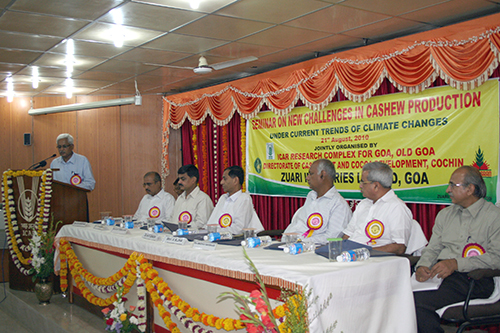 |
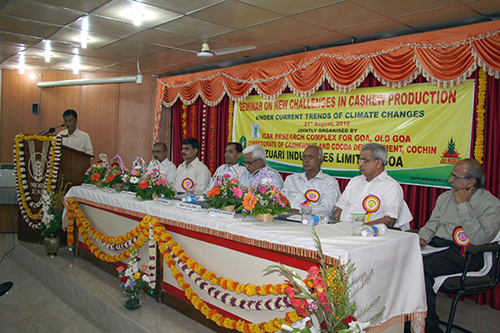 |
|
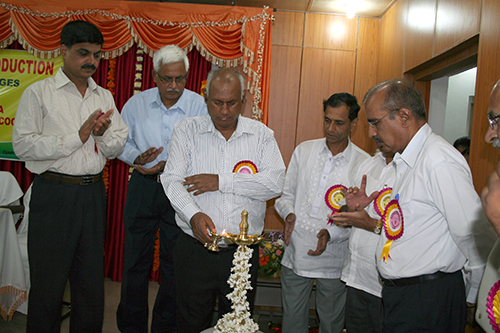 |
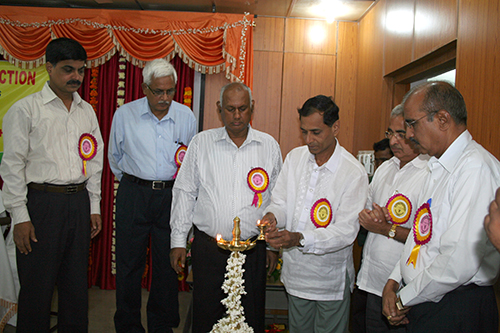 |
|
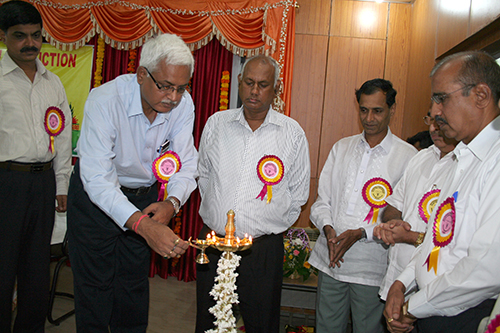 |
 |
|
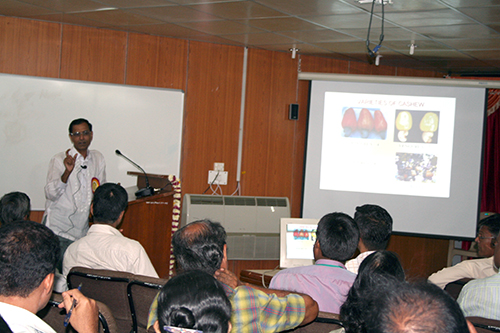 |
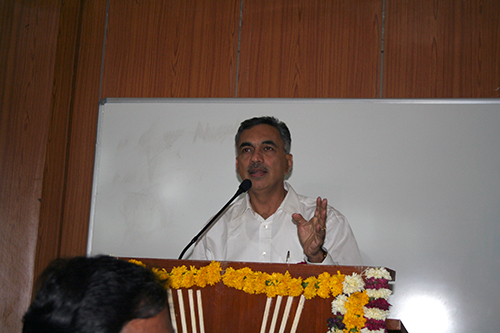 |
|
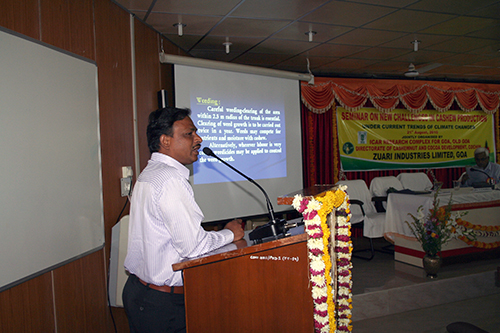 |
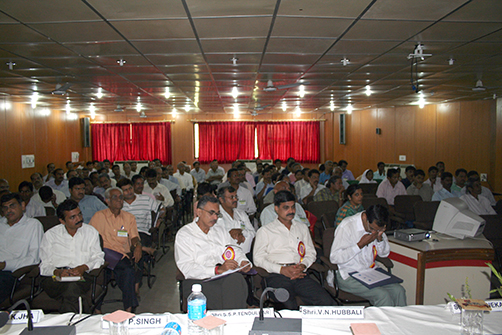 |
|
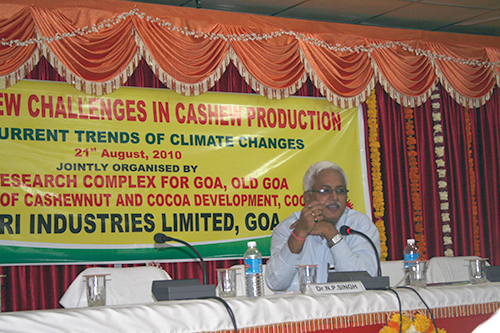 |
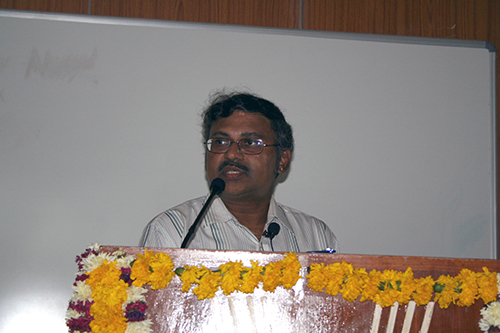 |
|
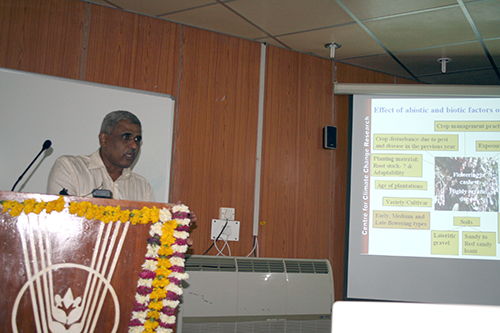 |
 |
|
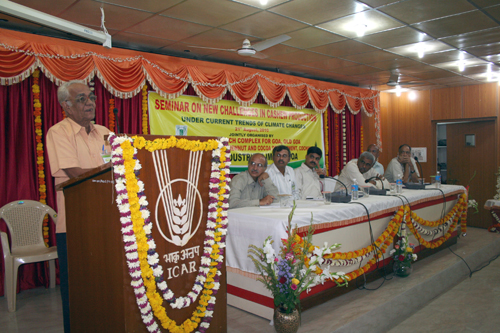 |
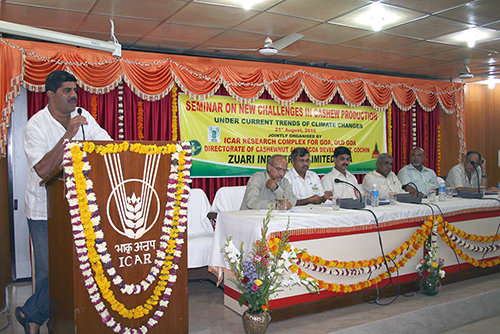 |
|
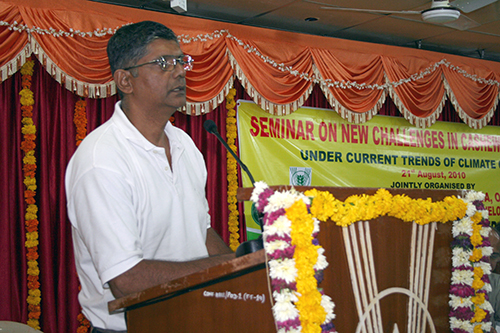 |
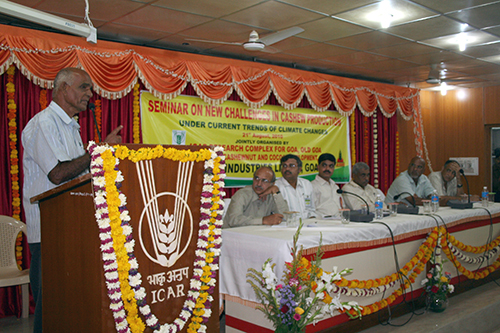 |
|